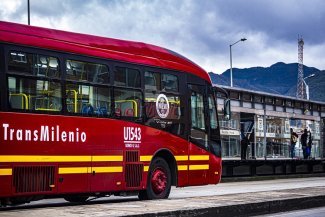In 2004, a 1200 km2 area in the Italian province of Campania, comprising the municipalities of Acerra, Nola and Marigliano, was named the “triangle of death” by the medical magazine Lancet due to its high incidence of cancer-related deaths.
More recently, the Italian environmental NGO Legambiente and author Roberto Saviano changed its moniker to “land of fire”, a reference to the common practice of burning rubbish in the area.
Ancient Romans used to call the region Campania felix (happy Campania) because of the land’s fertility. Now it is depicted by the media as an open-sky landfill.
But local farmers are saying that this depiction has caused almost as much damage as the dumping, and are now on a mission to rehabilitate the image of their once world-renowned products.
For decades, parts of Campania have been used for the illegal dumping, burning and disposal of toxic waste, under the management of the local mafia, the Camorra.
Legambiente estimates that in the last 22 years, over 410,000 trucks coming from northern Italy and from abroad have illegally disposed some ten million tonnes of toxic waste in the region, mainly residues from medical products, paints, used tyres, dioxin and allegedly even nuclear waste.
The Italian National Health Institute has recorded a higher incidence of some types of cancer in the area when compared to the national average, specifically liver cancer, bladder cancer and cancer of the central nervous system.
In February, the Italian government passed a decree law which foresees a full mapping of the contaminated land, stricter controls on the agricultural products and free screening for all citizens of the 81 municipalities in the “land of fire”.
Economy at risk
But it’s not only the health of Campania’s citizens that is at risk: the local economy has been affected, with a significant reduction in the export of local products such as buffalo mozzarella or San Marzano tomatoes.
The Italian General Confederation of Labour (CGIL) estimates that, in 2013 alone, four out of ten farmers in the region lost their job because of the media storm caused by the toxic waste scandal.
But local trade unionists say the media has exaggerated the health threat posed by the dumping.
“It’s not an emergency”, says Camilla Bernabei, the Secretary General of CGIL Caserta in Campania region. “Figures have proved that only 2 per cent of the land has been contaminated.”
Similarly, Beniamino Daniele, spokesperson of Coldiretti Campania, an association representing the agricultural workers in the area told Equal Times: “We have a proven-track record of super-healthy and safe products, as all the controls that have been made over the time have demonstrated.
“Even those products coming from the fields close to the notorious Giuliano rubbish dump, when analysed, have reported no sign of dangerous pollutants.”
However, that hasn’t stopped his members from feeling the full impact of the scandal.
“Because of what has been said about the so-called “land of fire”, our agriculture has come to a halt, as not only have exports to the rest of Italy stopped, but also to foreign countries.”
As early as 2008, South Korea, Japan and France imposed a ban on buffalo mozzarella because of the high level of dioxin found in some milk samples. The ban was later lifted after it was acknowledged that the mozzarella was fit for human consumption.
“This is an issue that affects the Italian economy as a whole” adds Daniele. “I was talking to a bag producer and he said that his trade was heavily affected as well, even if bags are not eaten.”
According to Alessandro Mastrocinque, president of another farmers’ organisation, CIA Campania, “only in 60 of the 58,000 acres that have been checked was a significant presence of pollutants detected.
“Some media have instrumentally over-exaggerated the scope of the problem, and this has caused huge damage to our sales. It’s now time to emphasise the top quality of our products and our organisation calls on the Campania region to help us promote the excellence of our land.”
Rebranding the infamous
The letters ‘NCO’ are infamous in Italy. They stand for Nuova Camorra Organizzata, or New Organised Camorra in English, one of the most powerful criminal organisations in and around Naples in the late 1970s and 1980s.
Now, some groups of small farmers in the region have decided to reuse the acronym to refer to their cooperatives which are slowly trying to rebuild the image of the area and to save jobs and local products.
Giuliano Ciano is the president of a consortium named New Organised Cooperation. “Our principle is that social economy is an antidote to criminal economy,” he explained to Equal Times.
“That is why we have invested in community-supported agriculture. What we are trying to spark is a bottom-up revolution, empowering the small farmers and producing quality organic crops. In this respect we’ve promoted the initiative ‘Facciamo un pacco alla Camorra’ (which translate roughly as “Let’s give a gift to the Camorra”), whereby we sell products across Italy that come from the confiscated lands which once belonged to the criminal gangs.”
The consortium now owns 25 acres of land, involves 41 partners, employs some 120 people – among whom there are many disadvantaged workers, either with disabilities or with a difficult/criminal background – and has an aggregated turnover of €5 million (US$ 6.9 million) a year.
“In Italy,” says Ciano, “some 150 million tonnes of toxic waste have been disposed of in the last decades. Of those, only 10 to 15 million tonnes are thought to have been dumped in the Campania region. This gives you an idea of the real dimension of the problem, which is not a local one, but something that involves the whole country.
“We are only the tip of the iceberg.”
And Peppe Pagano, another user of the NCO initials, who created a cooperative of restaurants called New Organised Cuisine, told Equal Times: “We want a public health certification to testify that the Campania products are currently the most controlled worldwide.”
Pagano says that a new Campania can be born out of the environmental damage wrought on the old one:
“We have solutions for the contaminated lands: there are plants such as willow trees, poplars and hemp that work as natural depollutants. We could use such plants to help clean up the ‘land of fire’”.









